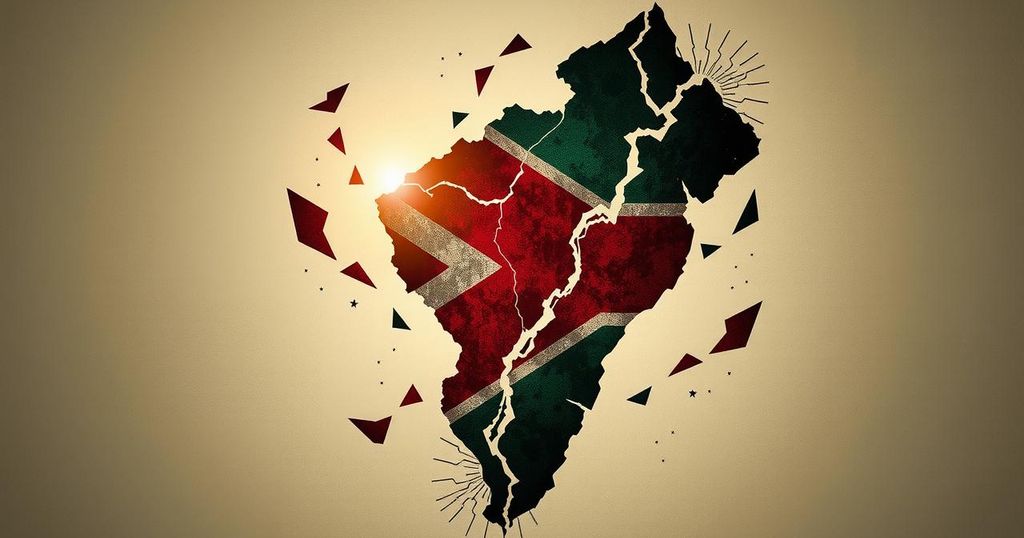The South Sudan Opposition Alliance has devolved into internal power struggles, neglecting crucial issues following the Revitalized Peace Agreement. Leaders are prioritizing personal ambitions over national interests, exemplified by conflicts over leadership roles. This fragmentation has impaired the opposition’s ability to serve as an effective counterbalance to the government, threatening democracy and accountability in South Sudan.
As South Sudan navigates a pivotal period in its political landscape, the opposition was anticipated to take a leading role in the implementation of the Revitalized Peace Agreement and to advocate for essential reforms. However, the South Sudan Opposition Alliance (SSOA) has devolved into internal power struggles, neglecting the pressing issues that concern the South Sudanese populace.
Post-agreement, the focus of the opposition should have concentrated on critical unresolved issues like army unification, institutional reforms, constitutional drafting, and fostering a conducive electoral environment. Instead, the alliance has been embroiled in a contentious battle for power, particularly around the Vice President’s seat, indicating a profound lack of strategic vision.
The current leadership among the opposition exhibits a troubling trend of self-interest prevailing over national commitment. Recent conflicts within the opposition parties reveal a disarray that distracts from the overall goal of a smooth transition to democracy, with leaders increasingly driven by personal ambitions and desires for positions of power.
The ongoing clash between Hussein Abdelbagi and Costello Garang regarding the presidency of the South Sudan Patriotic Movement (SSPM) underscores the internal divisions that are detrimental to the opposition’s effectiveness. Rather than uniting to advocate for substantive political reforms, infighting has rendered the opposition ineffective.
Additionally, Lam Akol’s shift from a critical stance to silence on government violations highlights the ongoing crisis within the opposition. His pursuit of a high-ranking position has led him to overlook important issues, demonstrating how personal ambitions can undermine public accountability and commitment to justice.
The current disarray within the opposition has allowed the government to fortify its power without facing meaningful challenges to implement necessary reforms. The lack of a cohesive and vigorous opposition has led to governmental inaction regarding the peace agreement, with many opposition figures relegated to nominal roles.
The absence of a robust opposition not only threatens democratic principles in South Sudan but also implies that upcoming elections may lack credibility. The inability of these leaders to transcend individual ambitions jeopardizes the prospects for genuine political progress, with historical accountability looming over their future.
In order for South Sudan to overcome its political chaos, the opposition must evolve beyond fragmentation and self-interest. A united front is crucial to challenge corruption and advocate for democratic governance. Should this transformation fail to occur, the populace may take decisive action, leaving those who neglected their responsibilities with no place in the new order.
The current condition of the South Sudanese opposition reveals a dire need for reform and unity in the pursuit of democracy. Personal ambitions have overshadowed national commitments, crippling the effectiveness of the opposition and enabling governmental overreach. Without swift action to redirect focus toward meaningful reform and accountability, the future of South Sudan’s political landscape remains perilous and uncertain.
Original Source: www.radiotamazuj.org






